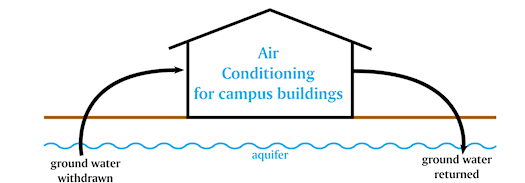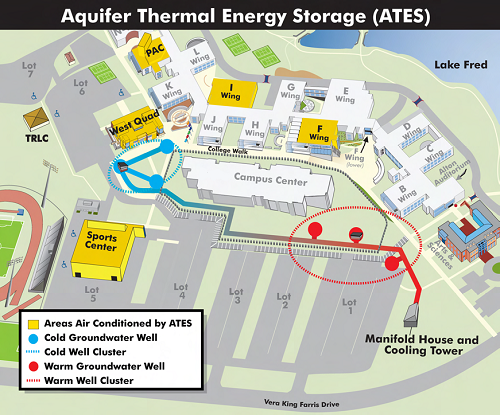Energy & Climate

Stockton’s ATES system is a seasonal cold storage facility that stores energy from winter to summer. Aquifer thermal energy storage systems store winter’s natural cold by chilling groundwater and putting it back into the aquifer for storage. Groundwater is chilled by being run through a cooling tower when conditions of temperature and humidity are favorable. In summer, the chilled water is withdrawn, used for air conditioning and put back into the aquifer.

Stockton University Participates in the American College and University Presidents Climate Commitment (ACUPCC). This is network of institutions making bold commitments to climate change and sustainability actions. Activities include:
- Greenhouse Gas Inventories (4)
- Climate Action Plan
During the summer months, the University participates in an energy saving work week schedule, which consist of four longer days and one day off. The change in work schedules results in a considerable reduction of energy use and is possible because of reduced use of our facilities in the summer months.
Stockton University has agreed to reduce electrical demand when the regional supply "grid" is under stress. This accomplished by changing thermostat settings and equipment operation, and soliciting community cooperation. Tests reflect successful implementation.
Stockton University is proud to host extensive solar arrays owned by two energy services developers, Marina Energy and BlueSky Power. These partners designed and installed the arrays and are responsible for their operation and maintenance. They own and sell the Solar Renewable Energy Credits associated with the arrays.
- The Marina Energy arrays generate 1200 KW-DC of electricity
- The BlueSky Power arrays generate 900 KW-DC of electricity

